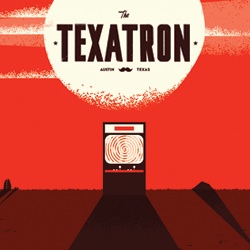TRIPLE ROCK: FAMOUS OR INFAMOUS? MORALITY AND CHOICE IN SUCKER PUNCH’S PS3 DEBUT
Earlier this week Tom Chick, editor of the Sci-Fi television channel’s videogame blog, Fidgit, was presented with something of a moral dilemma. Having posted his impressions of Sony’s exclusive PlayStation 3 title, inFamous, in two easy-to-digest posts, one outlining ten great things about the game and the other ten ‘poor’ features, Sony explained that his scheduled interview with the game’s development team would no longer be forthcoming.
According to the publisher the interview was “no longer appropriate” in the light of Chick’s coverage of the game. Chick’s dilemma? Whether to inform Fidgit’s readership of the Sony PR team’s apparent petulance, further antagonising its PR department, while reassuring the audience of the site’s continued impartiality in the face of mild threat. Or, alternatively, whether to bite his tongue as a way of protecting future interviews and exclusives with the publisher’s development teams (who, after all, had little to do with the snub) thus serving the readership’s interests by safeguarding the site’s continued relevance.
With convincing arguments on both sides it can’t have been an easy decision to make, especially because the repercussions of either choice are unclear. But this is exactly the sort of grey moral or professional choice that human beings are routinely called upon to make: a cat’s cradle of cause and effect with unpredictable outcomes and unfathomable implications. Life rarely presents black and white moral choices, even if our fables, parables and stories mainly deal in such extremities.
Late last year, inFamous‘ game director, Nate Fox, claimed that morality would “act as a tent pole feature” in the game and that players would have to “put down the controller at some point and think about what [they] want to do”. As the videogame medium enters its adolescence (or, at least, languishes in it), this kind of claim is heard with increasing regularity.
Game worlds encourage us to be the kind of player we want to be within them, rather than assuming a role the designer has predestined for us. In this regard inFamous is no different, allowing players to become a noble hero, working to bring peace and prosperity to a broken city or, alternatively, lashing out in reaction to the sorrows that have befallen him in a race to dominate.
In inFamous, the moral choices along both of these paths are made more explicit than usual. At certain points in the drama, the game world will grind to halt, the player informed that she’s arrived at a karmic moment where a potentially life-altering moral choice must be taken. We eavesdrop on protagonist Cole’s inner monologue as he weighs the two options in his mind, going through the benefits and drawbacks to each approach laid out before him.
Initially, these moral dilemmas are painted in blacks and whites: distribute the food parcels dropped by an aid plane to the starving civilians, or keep the packages for yourself by fighting off the competition. Or, when a passer-by asks for help in exchange for a reward, either graciously lend a hand or beat him senseless and take the money without earning it. These are clear-cut moral choices, ones that encourage us to behave in exaggerated, polarised ways, assuming the fictional role of a wholly good guy or a wholly bad guy, but rarely a wholly believable guy.
Of the game’s 100 missions, 30 of them have an explicit moral dimension: 15 paving the path to righteousness, 15 carrying you down the highway to hell. As you take on the set of good or bad missions, their counterpoints close off to you one by one, a neat mirroring of real-life systems where certain opportunities become unavailable based upon our previous actions. But despite inFamous‘ neat structuring of morality into the game framework, it still falls far short of the real life complexities and outcomes involved in decision-making.
In part this is an inescapable limitation of the medium. The most powerful way that a game designer can meaningfully show a player the repercussions of their choices, or dissuade them from making unethical or amoral decisions in a game scenario, is by threatening to take away their resources. So, in Assassin’s Creed, the player character is stripped of his parkour abilities early in the game when charged with murder, or, in Grand Theft Auto, the player is stripped of money and weapons when busted by the police.
These are punishments of inconvenience, protracting the player’s journey through their to-do list of in-game tasks: it’s far harder to communicate the guilt, regret or remorse that a real perpetrator might feel following an extra-marital affair or desperate robbery using game systems that deal almost exclusively in resource terms.
But inFamous turns this on its head later in the game by making the villainous choice in any moral decision the strategically superior one, the one that leads to quicker success and greater amounts of power for the player. These decisions are still very often black and white, and only a player explicitly playing through the game in the role of a malicious bastard would take them, but in strategic terms, the evil decision is usually the efficient decision.
I asked Clint Hocking, creative director of Far Cry 2 for his take on this approach. “We [also] made a game where embracing overt aggressive brutal violence is a mechanically good choice in many situations,” he explained. “But we also weighted the back end of the system to show the side-effects of prolonged ‘abuse’ of the benefits of this kind of violence. Games are well-positioned to provide a simulation of the domain space of a moral issue. Instead of saying racism or violence is bad, we can model a system wherein the player is able to be or not be racist or violent and see the repercussions of those decisions.”
“Now, I don’t think we succeeded particularly well in this area with Far Cry 2, but a good number of players ‘got the message’. The trouble is that a lot of what we were trying to display is lost in both our own creative, technical and process failures, and also lost on the audience’s willingness to see beyond the immediate thrill of second-to-second ‘fun’ to care about something deeper or richer. But we’re getting there, and so is the audience.”
This inversion of gaming’s usual punishment system in inFamous, combined with some grey area moral choices later in the game, that rely as much on context and personal choice as on the player’s general sense of right or wrong, provide a glimpse of where videogames may yet blossom in this area. While we are a long way from recreating the kind of difficult decisions that face many of us in our everyday lives, we’re working towards a place where the choice of becoming famous or inFamous is, happily, less than clear-cut.
[Simon Parkin is a freelance writer and Flash game producer from England. Triple Rock aims to pick out, discuss and celebrate a worthwhile or interesting mechanic from an unashamedly mainstream videogame.]
See more posts about: Offworld Originals, Triple Rock






